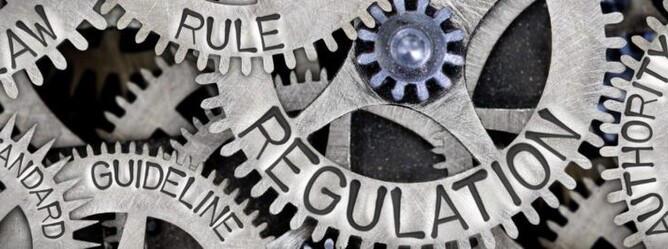Comparison of differences between valuation governance systems in Australia and New Zealand
Valuation governance may seem like a dry topic - but the reality is far more intriguing. The profession of valuation is not just important in the context of maintaining public confidence in the property sector. More broadly it is a vital link in the economy, especially that part related to property market financial transaction transparency - in turn facilitating the proper functioning, stability and maintenance of New Zealand's financial markets overall.
Registration and administration
In New Zealand, valuers are registered by the Valuers Registration Board (VRB), whereupon they are required under the Valuers Act 1948 to become a financial member of the New Zealand Institute of Valuers (NZIV). As far as administration of NZIV is concerned, under a Service Level Agreement (SLA), the Property Institute of New Zealand (PINZ) provides an array of administrative, professional and management support services to NZIV which facilitates its smooth running and management. NZIV members automatically become members of PINZ (at no additional cost) when they pay their annual NZIV membership subscription.
In Australia there is a similar system operating but the main variance is different state legislation applying in each jurisdiction. Previously, an analogous arrangement existed between the industry peak bodies (the Australian Property Institute, or API), and the Australian Valuers Institute (AVI). The latter operated in conjunction with each of the separate, state-wide Valuers Registration Boards. For example, in Queensland, which established their Institute as far back as 1929, is now governed by the Valuers Registration Act (1992) Queensland, which is administered by the Valuers Registration Board of Queensland. In similar fashion as New Zealand, Valuers need to be registered with the VRB (Qld) if they intend to undertake land valuations.
The AVI merged its operations involving accrediting property valuers in Australia, with the API whom provides accreditation for an expanded range of property professionals, including valuers, property managers, and land economists.
Code of Ethics
The Valuers Act 1948 requires NZIV to have a prescribed Code of Ethics in place for regulating the professional conduct of members of the Institute. Indeed, the NZIV Code of Ethics forms the backbone of NZIV and the valuation profession. The Code, which is mandatory for all NZIV members, sets NZIV and its members apart from other providers of valuation advice. Apart from prescribing critical areas such as professional responsibilities, conduct, and competencies, it also provides the basis by which members are tested when considering any complaints that may be lodged against them under the Valuers Act 1948 (S31 [2]). Any changes to the NZIV Rules requires support by Institute members, and subsequent approval by the Minister for Land Information New Zealand (LINZ).
It is noteworthy that the API also operates complaints and discipline procedures under a Code of Ethics and Code of Practice, similar to that operating in New Zealand. The API also places additional resources into Professional Standards, Advocacy and Discipline. The API extends this by recognising academic qualifications and industry experience by facilitating Associate Members use of AAPI post-nominals and their ability to exercise full voting rights.
Membership Numbers
Formerly known as the Australian Institute of Valuers & Land Economists, in 2015 the API became a “unified” national institute, and according to their latest published Annual Report now has around 7,500 members (now reported to exceed 8,500 members) including property valuers, developers, asset managers and other property professionals.
It is important to note that in Australia the API has a broad focus and represents professionals across the property industry, including valuers, property managers, land economists, and facility managers.
Unsurprisingly NZIV has around a little less than one fifth of the membership of their Australian counterpart (PINZ), which is roughly in line with population differences between the two countries. Proportionate membership of various API communities is probably similar to that of New Zealand.
Structures accommodating the addressing of valuation issues
There are a number of NZIV subcommittees that manage the various initiatives undertaken by the organisation: both directly, and through PINZ. These are as follows (primary area of responsibility indicated):
Education subcommittee (CPD, education initiatives)
Marketing subcommittee (promotion and growth of the profession)
Future Proofing & Resilience subcommittee (ensuring the profession remains current and relevant, including ensuring that the profession remains an integral part of NZ financial markets)
Code of Ethics subcommittee (Code of Ethics, mentioned previously, being the backbone of NZIV)
In addition, there are two other committees integral to NZIV functioning:
Professional Conduct Committee – PCC (an independent, investigative body looking at complaint against registered valuers. Operates under a formal Terms of Reference, which sets out its role, functions and procedures).
Advancement Interviews subcommittee (provides quality control via completing an initial review of applications received under ANZIV Associate membership function)
Finally, the Property & Valuation Standards Board provides best practice guidance for PINZ-NZIV members.
In Australia, there are eight State Committees that help shape the API’s advocacy agenda and address issues arising in the industry. There is also a Residential Valuation Industry Group (RVI Group) providing leadership to the industry on residential valuation sector issues, policies, operations, and quality.
Regarding the Residential valuation sector, NZIV is an observer on the Residential Valuation Forum, however that organisation operates very differently compared to the Australian RVI Group model.
Continuing Professional Development (CPD)
Members of the New Zealand Institute of Valuers are required to have a certain standard of competency, knowledge and education. Continuing professional development (CPD) is key to maintaining professional competency, comprising ongoing learning and education activities that enhance the professional knowledge and competency of individual members. As part of maintaining the standards of professional competency referred to in the NZIV Code of Ethics, every member is required to participate in an ongoing annual programme of Continuing Professional Development in accordance with guidelines published to membership from time to time by the Institute. Every calendar year a member must complete 20 CPD points and record it online. This must include a minimum of 5 Verified CPD points, with Non-verified CPD points making up the balance. One of the other key features is that every two years members must complete both the compulsory NZIV approved Ethics CPD event and the NZIV approved Standards CPD event.
A similar system operates in Australia. Every CPD year, Associate, Provisional and Fellow Members of the API must complete 20 CPD points inclusive of mandatory CPD (as for NZ, 1 CPD point is accrued per 1 hour of CPD activity or equivalent). Members in the MAPI category (a new membership category allowing broad range entry into the API) must complete 10 CPD Points. Also, to be recognised as a “Certified Property Valuer” (CPV) by the AVI, applicants need to demonstrate certain education qualifications and maintain their Continuing Professional Development (CPD).
Branch Networks
More than 70% of PINZ members are NZIV valuers, whom by default hold membership with both PINZ and NZIV - and therefore have access to the PINZ network of 17 branches (which are for all intents and purposes, also NZIV branches) serving around 1,800 members across New Zealand.
In New Zealand, the number of Council representatives – responsible for running the affairs of the Institute - are prescribed by the Valuers Act 1948, which provides for a minimum of 10 members of the Institute (including a president, and 2 vice-presidents), along with a member of the Institute appointed by the Valuer-General.
This is composition is further expanded upon in NZIV Rules which establishes three regions (Northern, Central and Southern), whereby nine members – in addition to the President, and the member appointed by the Valuer-General - comprise three members elected by the members in each of the three regions.
The API has a branch network that covers all states and territories of Australia, including a national office in Sydney, and state-based offices as well. Local branches operate in a similar fashion as PINZ branches, including organising local events, networking opportunities, and professional development resources. In 1990 the Australian Institute of Valuers & Land Economists changed its name to the Australian Property Institute. In 2015 the API became a unified national institute; with API having a Board structure similar to that of PINZ.


